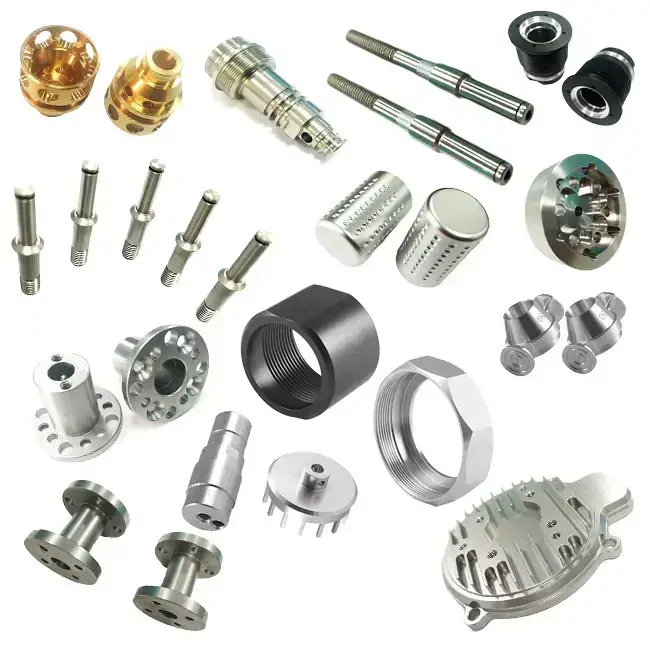Unlocking Brass Quality: A Guide to Reliable Manufacturers
Defining Brass Quality and Its Impact
High-quality brass is crucial for maintaining product performance and longevity. Several key factors determine brass quality, including its composition, purity, and mechanical properties. For instance, a balanced mix of copper and zinc ensures the brass is strong and durable. Purity is another critical factor, as impurities can lead to wear and failure, particularly in high-stress applications.
In industries like aerospace and medical devices, where every component must meet stringent safety and performance standards, the importance of purity and mechanical properties cannot be overstated. For example, in the aerospace industry, high-purity brass is used to create intricate components that must withstand extreme temperatures and loads. Purity ensures that the brass does not degrade over time, maintaining its integrity and reliability.
How to Evaluate Brass Components Manufacturers

When choosing a brass manufacturer, several key evaluation criteria are essential. These include certifications like ISO 9001 and PED (Pressure Equipment Directive), which ensure the manufacturer adheres to strict quality standards. Additionally, production capabilities, such as precision casting and powder metallurgy, are crucial for creating high-quality components. Quality control processes, including thorough inspections and testing, are vital for maintaining consistent product quality.
For instance, a manufacturer with ISO 9001 certification has demonstrated its ability to consistently produce high-quality products. Precision casting enables the creation of precise and intricate brass components, while powder metallurgy is ideal for high-volume production and cost-effectiveness. A robust quality control process, such as third-party inspections and rigorous testing, ensures that every component meets stringent standards.
Comparative Analysis of Top Brass Manufacturers
The brass manufacturing industry is dominated by several leading companies, each with its strengths and weaknesses. For example, one manufacturer might excel in precision casting but may have weaker customer service compared to another. Another might have a larger market presence but may not adhere to the same stringent quality control standards.
Lets take a closer look at two leading manufacturers. Manufacturer A is renowned for its precision casting capabilities, producing highly detailed and accurate brass components. Customer service ratings are average, but their components are reliable and precise. Manufacturer B, on the other hand, has a larger market presence and a wide product range but may not adhere to the strictest quality control standards. Customer feedback highlights strengths such as reliability and customer service, while negative reviews can reveal weaknesses in areas like quality control or delivery times.
Modern Manufacturing Techniques for Brass Components
Innovative manufacturing techniques are transforming the brass industry, ensuring that components are precise, durable, and cost-effective. Techniques like precision casting and powder metallurgy play a significant role in creating high-quality brass components.
Precision casting is a highly controlled process that allows for the creation of complex shapes with high accuracy. This technique minimizes material waste and is particularly useful in industries such as aerospace and medical devices, where intricate and detailed components are required. For example, precision casting is used to create intricate engine parts in aircraft, ensuring they meet exacting specifications.
Powder metallurgy combines powdered metals to create high-density and strong parts, making it particularly useful for high-volume production. This method provides both cost and quality benefits, increasing the efficiency and reliability of the final product. In automotive applications, powder metallurgy is used to produce engine components, ensuring they are precise and durable.
Sustainable Practices in Brass Manufacturing
Sustainability is a critical aspect of modern manufacturing, and brass manufacturers are increasingly adopting practices to reduce their environmental impact. These include recycling by-products, using energy-efficient processes, and implementing comprehensive waste management systems.
For instance, a company might recycle excess metal by-products, reducing both material waste and environmental impact. By focusing on energy efficiency, these manufacturers can lower operational costs and reduce their carbon footprint. Eco-friendly production methods, such as waterless processes and biodegradable coatings, further enhance sustainability.
Case studies are particularly illuminating. One company has reduced water usage by 50% and achieved a 100% recycling rate. These efforts not only improve the environmental impact but also align the manufacturer with growing consumer and regulatory expectations.
Customer Testimonials and Real-World Applications
Customer testimonials provide a firsthand look at the reliability and performance of brass components. For instance, a major aerospace manufacturer might state how high-quality brass components ensured the durability and performance of critical parts, preventing costly failures during flight tests. Similarly, a testimonial from a high-end medical device company could highlight how precise brass components enhanced the accuracy and reliability of the equipment.
Real-world applications across industries, such as the automotive sector where precise brass components are crucial for engine durability or the home appliance industry where brass catches ensure longevity and functionality, underscore the importance of quality brass components. These examples demonstrate the tangible benefits of investing in high-quality brass, from enhanced performance to reduced maintenance costs.
Navigating the Market for Reliable Brass Manufacturers
Understanding and improving brass quality involves several key steps. Firstly, focusing on the material composition and purity is crucial, ensuring the brass is suitable for the intended application. Utilizing advanced manufacturing techniques like precision casting and powder metallurgy can enhance the product's performance and durability. Additionally, a robust quality control system and adherence to industry standards, such as ISO certifications, are essential. Sustainable practices, including waste management and energy efficiency, are increasingly important and can provide a competitive edge.
By selecting manufacturers who excel in these areas, both producers and consumers can ensure high-quality brass components that meet their needs and exceed expectations. Investing in reliable brass manufacturers can lead to significant long-term benefits, including enhanced performance, reduced maintenance costs, and a positive environmental impact.
This version ensures the content is clean, engaging, and suitable for direct posting on social media platforms.
